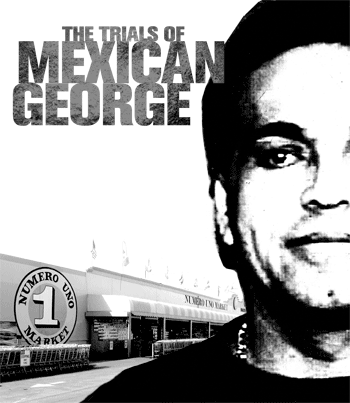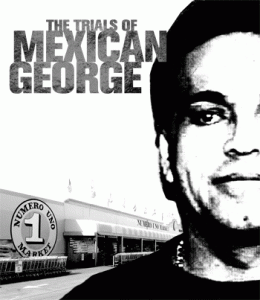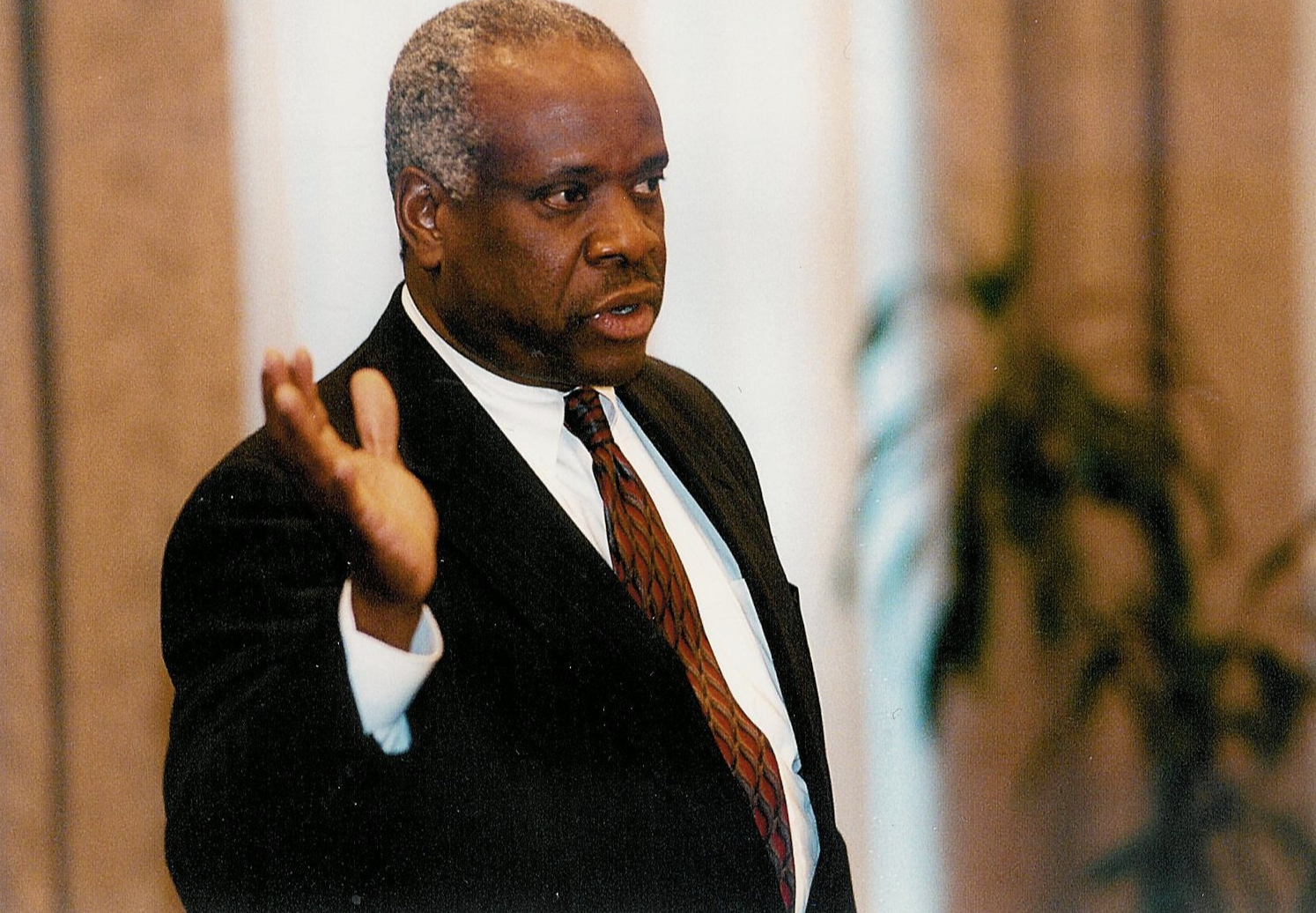By Jeffrey Anderson
For ticklethewire.com
The defense lawyer for accused racketeer George Torres smelled blood. Torres, a self-made grocery store magnate and suspected drug kingpin, who was both feared and revered in the barrios of South Los Angeles, was on trial in federal court.
Prosecution witnesses were lined up waiting to testify that he was a brutal gangster, who exploited immigrants, cheated on his taxes and ordered gangland murders.
Yet at the trial in U.S. District Court in Los Angeles in April it was Torres’ attorney, Steven Madison, a former federal prosecutor, who went on the offensive, insisting that a rogue L.A. detective had a vendetta against his client.
The detective, Greg Kading, was making promises and threats to witnesses and withholding evidence from the defense in his zeal to see Torres convicted, Madison argued.
U.S. District Judge Stephen Wilson had made no effort to hide his disdain for the government’s case that finally came to fruition after 20 years of failed drug investigations of one of Los Angeles’ most elusive underworld figures.
Still, on April 20, the jury delivered a resounding victory for the prosecution, convicting Torres on 50-plus counts including two of the most critical ones: RICO counts (Racketeering Influenced And Corrupt Organizations Act) that involved criminal conspiracy and solicitation of murder.
In June, within two months of the verdict, the case unraveled and became a growing embarrassment for the U.S. Attorney’s office. The government voluntarily dismissed the two major RICO counts after serious flaws in the case were exposed.
Judge Wilson ordered Torres released from prison, where he had been held without bail since his arrest in June 2007. And Torres decided to sell his grocery chain to an L.A. based equity firm with a Houston partner, according to the L.A. Business Journal.
Last month, the judge delivered the final blow to the prosecution in a blistering 147-page order: “The court is disturbed by the conduct in this case,” he wrote of the government’s handling of key witnesses involving a pair of murders allegedly directed by Torres. He then ordered a new trial on remaining tax and bribery counts for Torres, whom the government was never able to catch with drugs or drug money.
“The Court finds it likely that the jury could have been improperly influenced by the subtext of the entire case, which was that George Torres was somehow involved in drug-trafficking,” Wilson wrote in his September 18 order.
Now, despite a jury verdict that once threatened to put him away for life, Torres, a fruit truck operator turned owner of the multi-million dollar Numero Uno supermarket chain and vast swaths of real estate, is a free man.
The case is perhaps another cautionary tale of how complex cases can go so wrong for a U.S. Attorney’s Office.
But the big question is: How did this one implode?
The Los Angeles media followed Madison’s lead and blamed L.A.P.D. Det. Greg Kading, the lead investigator on the case. The reality is far more complicated: a perfect storm of questionable witnesses, fallible detectives and a bold strategy advanced by Assistant U.S. Attorney Timothy Searight, who succumbed to an unusually assertive and skeptical judge.
The outcome has been a clear embarrassment for the U.S. Attorney’s Office and tarnished both Kading, who was dropped from the DEA task force, and Searight, chief of his offices’ narcotics division, who was replaced on the case by a superior.
Neither Searight nor Kading would comment for this story. The U.S. Attorney’s Office says it is prepared to re-try Torres on the non-RICO counts.
Torres’ attorney Robert Eisfelder remarked: “We’re extremely grateful for the time and effort the court put into this opinion.”
For decades, law enforcers suspected Torres as a drug kingpin with ties to the Sinaloa Cartel, a Mexican organization known to have tentacles in Southern California.
Unsolved murders in the graffiti-scarred area around his flagship Numero Uno supermarket in South Los Angeles, along with an eerie deference by the locals, caused L.A. homicide detectives to regard him as a dangerous man.
Torres’ tendency to use coded language over the phone when talking to associates who were major drug traffickers, his preference to meet them to talk in person, and his use of a Puerto Rican bank known for its lack of cooperation with government investigations convinced drug investigators that he was a kingpin.
A father of five with a wife and a female companion who both bear his last name, Torres also earned a reputation for hard work, good customer service and fair prices at his 11-store chain of supermarkets, which he launched in the early 1980s.Until his indictment he perhaps was best known as the real estate partner of Horacio Vignali, father of Carlos Vignali, a drug dealer set free by President Clinton in the 2000 Pardongate scandal.
Torres’ indictment in 2007 on RICO charges stemmed from wiretap investigations in 1998 and 2004 of two associates and drug dealers, Derrick “Bo-D” Smith and Raul Del Raul.
The two were serving lengthy sentences for drug trafficking when they agreed to testify against Torres, who Del Real referred to as “boss,” even though Del Real never worked at Numero Uno. Del Real, Smith and others would finger Torres during trial in three unsolved murders in South L.A.
But while the 2004 wiretap investigation aimed to prove Torres was involved with Del Real’s violent drug trafficking conspiracy, which extended from Mexico to the East Coast, a tap of Torres’ phone yielded evidence of other crimes. Still, investigators never seized drugs or drug money in the case.
In February, during a pretrial hearing, Judge Wilson remarked: “It’s been pretty clear to me that the government’s strategy is to try a drugless drug case. Why wouldn’t a jury who is not deaf and dumb figure that out?”
At trial, Searight decided not to focus in on Torres as drug kingpin. Instead, he embraced the idea of him as a racketeer, a man who ran his supermarkets as a criminal enterprise in which he extorted money from helpless immigrants, bribed public officials and hired drug dealers to intimidate and sometimes kill those who crossed him.
The theory was fraught from the start. Judge Wilson distrusted the government’s use of the criminal RICO statute, which was enacted in the 1970s to disrupt the activities of the Mafia. By the time the case went to trial in March, the judge put Searight on notice that he was going to watch the government like a hawk.
During the trial the judge ended up suppressing evidence, throwing out some counts and accusing L.A. Det. Kading of acting with “reckless disregard for the truth” by misquoting conversations from a wiretap on Torres’ phone in a search warrant affidavit.
Seizing on the judge’s disdain, defense attorney Madison hammered away at Detective Kading’s credibility. Tapes of jailhouse conversations showed Kading resorting to inducements and threats to keep in line star witnesses and convicted drug dealers Del Real, who was serving 14 years and Smith, who was serving 24-years.
One call showed Kading offering to help Del Real’s brother stay out of trouble with the police. Another made it look as if Kading was supplying the answers to questions for Smith to say yes to.
Madison also complained of evidence that had not been turned over, such as police logs of witness interviews. He accused Kading of being obsessed with destroying Torres, and with bribing witnesses to corroborate a phony story.
The jurors didn’t buy it, convicting on more than 50 felonies that included Torres ordering the murder of an L.A. gang member named Jose “Shorty” Maldonando, who had tried to extort a tax from him. They acquitted him on one of the serious RICO counts involving the murder of Torres’ former right hand man Ignacio Meza.
Then Madison really went to work, and the U.S. Attorney’s Office saw its case come apart at the seams.
After the trial, Madison asked Judge Wilson to toss the verdict on grounds that Kading had tainted the entire case with lawless tactics. Madison turned up more tapes of jailhouse conversations that the government had not previously disclosed involving Kading, drug dealers Smith and Del Real, and other informants.
The tapes showed Detective Kading reminding one witness that he could face charges for other crimes if he refused to testify against Torres. The tapes also showed that Del Real and Smith expected early release and perhaps financial gain for testifying against Torres. No such deals could be confirmed.
Madison also discovered that Los Angeles defense attorney Wayne Higgins, a lawyer for Smith, allegedly received a free navigational system from a used car salesman with Kading’s help. Higgins had no comment.
Under the landmark 1963 U.S. Supreme Court case Brady v. Maryland, a failure to turn over such information – on the part of the prosecutor – can be grounds for a new trial or dismissal if the information is favorable to the defendant and may have prejudiced the outcome of the case.
On June 9, Wilson ordered Torres released from prison, after the U.S. Attorney’s Office dismissed the RICO case against Torres.
“Torres is clearly entitled to a new trial,” Thom Mrozek, spokesman for the U.S. Attorney’s Office told reporters at the time. “And after a review of the totality of the case we decided not to pursue the RICO case any further.”
Madison moved in for the kill, arguing that “inflammatory” racketeering evidence tainted the jury in weighing the remaining bribery and tax counts, and asking the judge to dismiss the entire case.
While the judge in his lengthy September order manages to deny most of the defense requests, he also manages to drive a stake through the heart of the United States v. Torres. And he reserves his harshest comment for federal prosecutor Searight:
“A prosecutor who does not appreciate the perils of using rewarded criminals as witnesses risks compromising the truth-seeking mission of our criminal justice system.”
Wilson ordered the new trial for the remaining non-RICO charges primarily on the spillover effect – essentially that the questionable RICO charges had tainted the other charges.
He also said the non-RICO guilty verdicts against Torres on tax, harboring illegal immigrants and bribery were based on a “weak” case and bolstered by witnesses who were “not credible” because they had not been prosecuted for their part in Torres’ tax crimes.
In issuing his order, the judge clearly had little regard or respect for the jury’s judgment. Many of his findings are prefaced with the words “No reasonable juror could conclude …” He questioned whether jurors were paying attention, or blinded by the lurid details and hardened witnesses from Torres’ inner circle.
“The jury was undoubtedly given the impression that George Torres was an unsavory character in light of his longtime friendship and associations with these despicable human beings,” Wilson wrote.
Of such a thorough undoing of such an overwhelming guilty verdict, veteran defense attorney Mike Stone, a lawyer for Detective Kading said, “I don’t believe I’ve ever seen a case go like this.”
Asked why he thought the government dismissed the RICO counts without a fight Stone said, “I don’t think they’d have rolled over like that if they didn’t think they had a chance of keeping the other counts.”
Judge Wilson wondered the same, and speculated in his order: “Perhaps [the prosecution] concluded they could not proceed in good faith. If they had dismissed the RICO sooner, Torres would’ve enjoyed a trial that was free from the spillover prejudice of the RICO counts. Because of the government’s own failures, however, this information was not revealed until after the trial began.”
Defense attorney Steven Madison thinks he knows why the government caved. “My sense is that the government has concluded it cannot trust Kading,” he said in June, after the government dropped the meat of its case. “Searight relied on an unreliable guy.”
Madison’s focus on Detective Kading as the scapegoat in the case may have been unfair considering there were other investigators who failed to disclose certain conversations they had during the probe.
Veteran investigators familiar with the case are displeased with the way Kading has been dragged through the mud.
Speaking on background, a number of law enforcers said that Searight was cowed by the judge and was not aggressive in refuting the defense’s broadside attacks against Kading. Several said that Searight should have made sure that all Brady information was turned over to the defense.
Others see Judge Wilson as the wildcard. “A good defense attorney is going to sense a sympathetic judge and argue every technicality he can,” says a federal prosecutor familiar with the Torres case. “Federal judges are powerful. Maybe Wilson was stunned by the jury verdict. Judges can’t control jury deliberations but they control post-trial motions.”
The veteran prosecutor concedes, “It is virtually impossible to control every asset or agent in a case, and sometimes the cumulative effect can look bad.”
Not to mention the value of a stellar defender who appreciates when conditions are ripe for upheaval: “Madison kept pushing to see how far he could go in taking apart the case,” the veteran prosecutor says, “and he went pretty far.”
Read Previous stories on Torres by Jeffrey Anderson
Los Angeles City Beat (2/18/09)







Note, Witness Del Real did indeed work for Numero Uno. NOTE THE SIMILAR SITUATION FOR Zhenli Ye Gon, caught in Maryland, his assets in his mansion in Mexico City found, i.e., shown red handed with millions (claims he was holding it for the PAN party upon threat of ¨Coopera o cuello¨), whom judge it seems has let off with prejudice, and who may not be extradited to Mexico, either. This is a pattern, the fandango the witnesses do or are forced to do, to work the system. The judges don´t get it, and it´s a bad day for the American justice system.